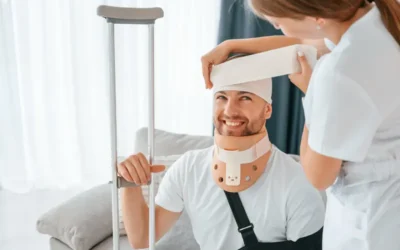Just as in any other healthcare setting, proper documentation is a very important part of nursing in nursing homes and long-term care facilities. The medical record of a resident allows nurses and other caregivers to have a clear idea of the medications prescribed to the resident, their diagnoses and prognoses, dietary restrictions and other key medical information. Nursing records also have an impact on the reimbursement amount the nursing home receives from Medicare and Medicaid for each resident. Inadequate documentation could lead to delay or denial of the due reimbursement. Apart from their significance with regard to patient care, medical documentation and medical records review are crucial aspects in medical litigation for nursing home injuries.
The Significance of Medical Records and Chart Review
When there is suspected nursing home abuse, a lawsuit may be filed against the facility by the injured patient’s family. The first form of evidence the personal injury attorney representing the nursing home resident will want is the medical chart or the entire medical record set for medical record analysis.
A provider of medical review service for nursing home abuse attorneys would evaluate the entire medical record set of the resident, which includes hospitalization records, medical history, lab findings, imaging studies and so on. Medical record documentation is of utmost importance when reviewing nursing home injuries. The reviewer will be looking for signs of negligence and resultant injury as revealed in the medical records.
So, what constitutes poor medical documentation in nursing homes?
- Failure to include pertinent information. This could lead to patient harm and liability issues for the facility and the treating physicians.
- Illegible or messy handwriting which could result in other care providers mistaking or misinterpreting the information.
- Not documenting discontinued medications and treatments.
- Missing or incomplete documentation.
- Not recording the date, time, and signature in a medical entry.
- Documenting data that is subjective.
- Adding entries at a later date without mentioning the new date.
- Using the wrong medical abbreviations and shorthand.
- Entering the data into the wrong medical chart.
- Not documenting on a daily basis.
Every U.S. state has definite policies and procedures in place regarding the items to include in the nursing home documentation and how it should be documented so as to ensure appropriate patient care as well as avoid any adverse medical events stemming from inaccurate documentation. Patient safety and standard of care are key concerns when it comes to nursing home documentation. If the documentation is faulty or vague, there could arise a huge liability issue and legal hassles. Missing documentation also poses a huge threat because then there is no legal evidence that the nursing home did all they were obliged to do with regard to the care for the resident. The law requires each nursing home facility to keep accurate and reliable medical records for each patient and ensure documentation of admission intake, physicians’ orders, care plans and so on.
Compliance Requirements with Regard to Medical Records
- Treating physicians are required to develop an effective treatment plan for each patient, including in it instructions for medications, diet, nursing services, and rehabilitation.
- Any drug reaction or medication error must be reported to the resident’s primary care physician, and also documented in the clinical record. The family should be immediately notified and the patient given a full medical examination, even if there are no physical symptoms.
- The medications prescribed should be administered only by a doctor, physician’s assistant, registered nurse, nurse practitioner or licensed practical nurse. Sometimes, professionals with specific training may be allowed to administer the same. It is important that the specific professional’s name is listed in the patient’s medical record.
- When the resident is transferred to another nursing home, the current nursing home must document the patient’s medication record before the transfer, in keeping with the compliance requirements. This record must be created at the time of the patient’s discharge and include the information necessary – i.e. the patient’s name, their new address, the date of discharge, the name of the drug and its strength, quantity, and the names of the pharmacy and prescriber to continue the treatment safely. The nursing home facility should also provide additional documentation for opioids, sedatives, prescription narcotics, barbiturates, and amphetamine.
- Nursing facilities must also be extra cautious to document the patient’s care on a timely basis to ensure appropriate ongoing care. During emergency situations such as infection outbreaks, nursing home elder abuse, falls, unexpected deaths or other grave incidents, the facility must report them instantly so as to ensure immediate medical care for patients.
As discussed above, accurate medical record documentation is a crucial consideration for patient care and the best defense against any personal injury or medical negligence lawsuit. Therefore, it is the nursing home facility’s responsibility to keep the medical charts of their patients properly and safely. Nursing home medical documentation and medical chart review are important from both medical and legal points of view. If during a nursing home injury case, the review of documentation shows that the records are perfect with no anomalies or ambiguities, the nursing home has nothing to worry about. Accurate documentation is important for the facility to be in compliance with federal regulations and state laws.




